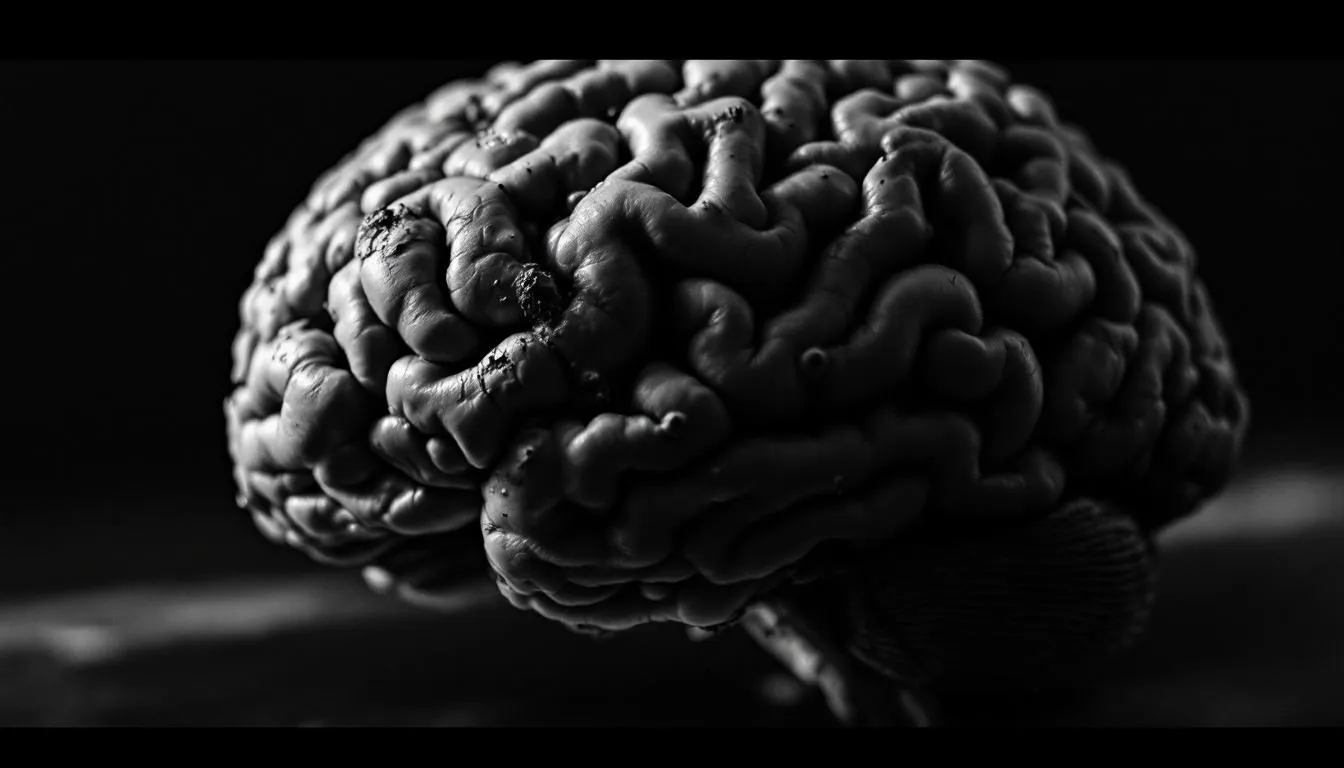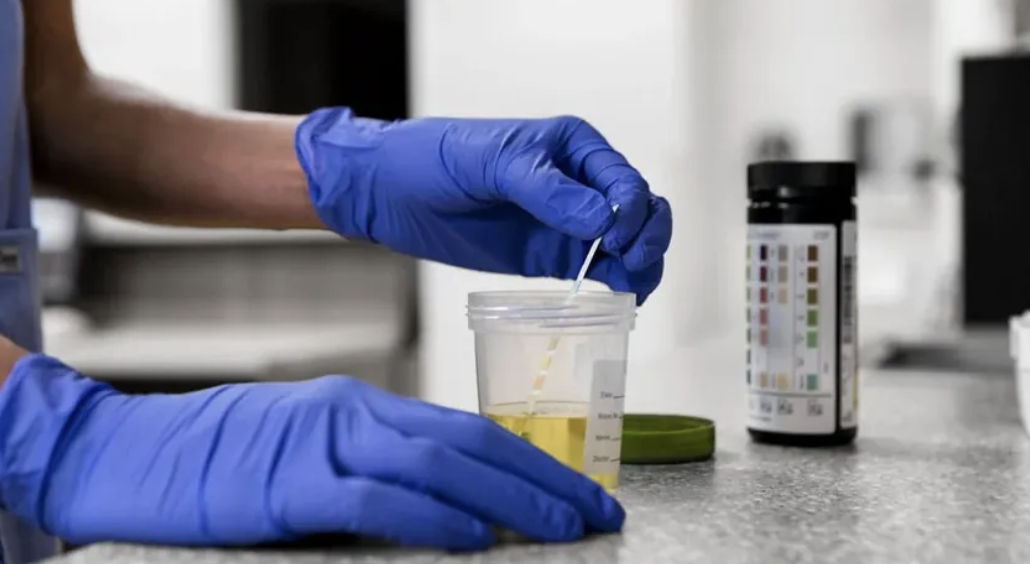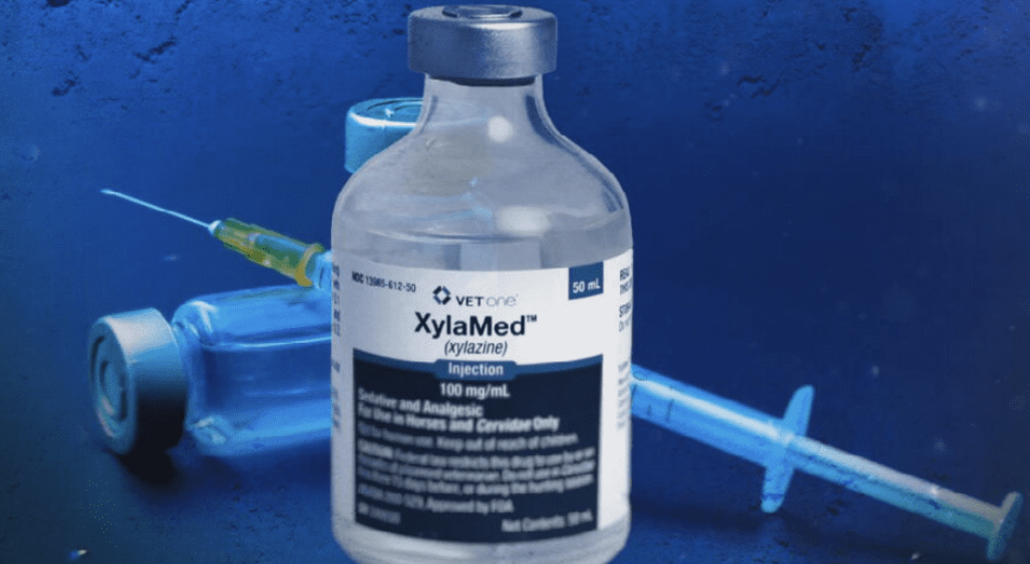Alcoholic dementia is brain damage caused by chronic alcohol abuse, leading to memory issues and cognitive decline. In this article, we discuss its causes, symptoms, diagnosis, and treatments to help you understand this condition.
Key Takeaways
- Alcoholic dementia is a condition caused by chronic alcohol consumption leading to significant cognitive decline and brain damage, distinguishable from other dementias such as Alzheimer’s.
- The condition is characterized by early signs including memory loss, cognitive impairments, and emotional changes, which are critical for timely diagnosis and intervention.
- Treatment for alcoholic dementia involves complete abstinence from alcohol, nutritional support, and cognitive rehabilitation, with early intervention offering the potential for partial recovery.
What is alcoholic dementia?
Alcoholic dementia, also known as alcohol-related dementia or alcohol-induced dementia, is a condition resulting from chronic alcohol misuse that damages brain cells. This type of brain damage can lead to significant cognitive decline, affecting memory, reasoning, and overall mental function. Unlike other forms of dementia, such as Alzheimer’s disease or vascular dementia, alcoholic dementia is directly linked to prolonged alcohol consumption patterns.
Clinically, alcoholic dementia encompasses several conditions under the umbrella of alcohol-related brain damage (ARBD). One of the most severe forms is wet brain from alcohol, or Wernicke-Korsakoff syndrome, which arises from thiamine (Vitamin B1) deficiency due to excessive alcohol intake. Individuals with this syndrome often experience severe memory problems and cognitive impairments.
Distinguishing alcoholic dementia from other types of dementia is essential. Alzheimer’s disease is degenerative and not caused by substances, whereas alcoholic dementia results from alcohol’s neurotoxic effects on the brain. This distinction aids in accurate diagnosis and treatment.

Can alcohol abuse cause dementia?
Yes, alcohol abuse can indeed cause dementia. Chronic alcohol consumption impairs thiamine absorption, significantly increasing the risk of developing dementia. Studies have shown that long-term alcohol misuse leads to brain degeneration, which manifests in dementia symptoms such as memory loss, impaired judgment, and cognitive decline.
The neurotoxic effects of alcohol, especially when consumed in excessive amounts over a prolonged period, can lead to too much alcohol damages and alcohol-related brain injury. This type of brain damage disrupts the normal functioning of brain cells, contributing to the development of alcohol-related dementia.
Recognizing the risks of heavy alcohol consumption is vital to preventing and treating consuming alcohol-related dementia, especially when there is a higher risk involved with too much alcohol.
What are the early signs and symptoms of alcoholic dementia?
Recognizing early signs and symptoms of alcoholic dementia is crucial for timely intervention. Indicators such as memory lapses and difficulties with everyday tasks often go unnoticed or are mistaken for normal aging or other mental disorders, yet they are critical warning signs of cognitive decline.
The symptoms of alcoholic dementia can be categorized into three main areas: cognitive and memory impairments, behavioral and emotional changes, and physical and neurological symptoms. Each of these categories provides a glimpse into how alcohol-related brain damage affects various aspects of an individual’s life.
Recognizing these symptoms aids in early diagnosis and appropriate treatment strategies. The following subsections detail each category, offering a comprehensive overview of the signs to watch for.
Cognitive and memory impairments
Cognitive and memory impairments are often the most noticeable early signs of alcoholic dementia. Individuals may experience short-term memory loss, making it difficult to remember recent events or conversations. This can lead to challenges in performing day-to-day tasks that require concentration and executive function.
Moreover, alcohol-related brain injury can cause executive dysfunction, affecting an individual’s ability to plan, organize, and make decisions. These cognitive deficits can severely impact daily life and are indicative of the brain damage caused by chronic alcohol use.
Behavioral and emotional changes
Behavioral and emotional changes are common in individuals with alcoholic dementia. Personality shifts, irritability, and apathy are often observed due to the impact of alcohol on the frontal lobe. These changes can lead to significant mood swings, increased aggression, and anxiety.
Emotionally, individuals may become more insular and exhibit insensitivity in social interactions. This can complicate their ability to engage socially and maintain relationships. Additionally, apathy and lack of motivation can affect their participation in essential daily activities, further deteriorating their quality of life.
Physical and neurological symptoms
Physical and neurological symptoms are also prevalent in alcoholic dementia. Individuals may experience symptoms of alcohol related:
- Coordination problems
- Tremors
- Vision changes
- Balance issues
These symptoms result from the brain damage caused by chronic alcohol consumption, which affects the brain’s ability to control motor functions.
Furthermore, alcohol-related brain damage can lead to abnormal involuntary eye movements and other neurological impairments. These symptoms, combined with cognitive and behavioral changes, paint a comprehensive picture of the impact of alcoholic dementia on the individual’s overall health and well-being.
How is alcoholic dementia different from Alzheimer’s or other dementias?
Alcoholic dementia differs from Alzheimer’s and other dementias in several key ways. Firstly, alcoholic dementia stems from substance toxicity, specifically the neurotoxic effects of alcohol on the brain, whereas Alzheimer’s disease is degenerative and not substance-induced. This fundamental difference in cause leads to distinct differences in onset, reversibility, and progression.
For example:
- Alcohol-related brain damage can sometimes be partially reversible if caught early and treated aggressively.
- Alzheimer’s disease is a progressive and irreversible condition.
- Symptoms of alcoholic dementia may improve with abstinence from alcohol and appropriate medical treatment.
- Alzheimer’s patients experience a steady decline without improvement.
A side-by-side comparison can help illustrate these differences:
What causes alcoholic dementia?
Alcoholic dementia is primarily caused by alcohol addiction, which leads to significant brain damage and cognitive decline. The neurotoxic effects of alcohol, coupled with nutritional deficiencies and liver dysfunction, contribute to the development of this condition. Knowing these causes aids in formulating effective prevention and treatment strategies.
The following subsections will delve into the specific causes of alcoholic dementia, including:
- Chronic alcohol abuse and brain damage
- Thiamine (Vitamin B1) deficiency
- Liver dysfunction and its neurological effects Each of these factors plays a crucial role in the onset and progression of alcohol-related dementia.

Chronic alcohol abuse and brain damage
Chronic alcohol abuse leads to neurotoxicity, particularly in the frontal cortex and cerebellum. Sustained alcohol misuse can cause:
- Atrophy in these brain regions, affecting cognitive functions like memory and decision-making
- Death of nerve cells
- Shrinkage of brain tissue These are common outcomes of long-term excessive alcohol intake.
Heavy drinking can also compromise blood vessels in the brain, increasing the risk of strokes from insufficient blood supply. This combination of direct neurotoxic effects and secondary damage from strokes significantly contributes to alcoholic dementia.
Thiamine (Vitamin B1) deficiency
Thiamine (Vitamin B1) deficiency is a significant cause of brain damage in individuals with chronic alcohol use disorder. Alcohol impairs the absorption of thiamine, leading to neurological damage and conditions like Wernicke-Korsakoff syndrome. Thiamine is crucial for energy metabolism in the brain, and its vitamin deficiency can impair cognitive functions and memory.
Symptoms of thiamine deficiency can include confusion, balance issues, and coordination problems. Immediate treatment with thiamine can help alleviate these symptoms and prevent the progression of associated memory disorders.
Liver dysfunction and its neurological effects
Liver dysfunction due to excessive drinking can result in hepatic encephalopathy, which further exacerbates cognitive decline in individuals with alcohol-related dementia. The liver plays a crucial role in detoxifying the body, and its impairment can lead to the accumulation of toxins that affect brain function, contributing to cognitive impairments.
Thiamine deficiency from alcohol abuse also causes structural brain damage. This combination of direct neurotoxic effects, nutritional deficiencies, and secondary damage from liver dysfunction underscores the multifaceted nature of alcoholic dementia.
How is alcoholic dementia diagnosed?
Diagnosing alcohol-related dementia can be challenging, especially if the person hasn’t disclosed their alcohol consumption habits. A comprehensive understanding of the patient’s drinking patterns and diagnosing dementia cognitive impairments is essential for accurate diagnosis.
The diagnosis process includes neurological and psychological assessments, brain imaging, and lab tests. These methods identify cognitive deficits and rule out other conditions, as outlined in the diagnostic and statistical manual, leading to a clinical diagnosis. The following subsections provide detailed insights into these diagnostic approaches.
Neurological and psychological assessments
Neurological and psychological assessments are crucial for diagnosing alcohol-related dementia. A doctor may utilize paper-based tests to evaluate cognitive functions, including memory and reasoning skills. Common tests include the Mini-Mental State Examination (MMSE) and the Montreal Cognitive Assessment (MoCA), which help assess the severity of cognitive impairments.
Psychological assessments often include questionnaires to evaluate the patient’s memory, reasoning, and problem-solving abilities. These evaluations provide a comprehensive understanding of the cognitive deficits and help in formulating appropriate treatment plans.
Brain imaging and lab tests
Brain imaging techniques, such as MRI and CT scans, are utilized to:
- Detect structural changes and assess potential damage caused by alcohol abuse.
- Reveal structural brain changes indicative of alcohol-related cognitive impairment (MRI scans).
- Exclude other possible conditions like stroke or tumors.
These imaging methods are essential for accurate diagnosis and assessment.
Lab tests can help identify nutritional deficiencies, particularly thiamine, which is linked to cognitive issues in individuals with a history of heavy drinking. These tests, combined with brain imaging, provide a comprehensive diagnosis of alcohol-related dementia.
Can alcoholic dementia be reversed?
The likelihood of reversing alcoholic dementia depends on several factors, including the duration of alcohol abuse, nutritional status, and comorbidities. Some cases are partially reversible if caught early and treated aggressively. Early intervention with abstinence and thiamine supplementation can improve symptoms of alcoholic dementia.
However, the extent of recovery varies among individuals. While some may experience significant improvements with appropriate treatment, others may have irreversible brain damage that limits their recovery, a process often outlined in the alcohol recovery timeline. Early detection and intervention are crucial for improving the prognosis of alcoholic dementia.
What are the treatment options for alcoholic dementia?
A comprehensive treatment plan for alcoholic dementia typically includes medical care, abstinence from alcohol, and psychological support. Stopping alcohol consumption is crucial to prevent further brain damage and manage symptoms.
The following subsections detail various treatment options, including medical interventions, abstinence and addiction treatment, and cognitive rehabilitation and supportive therapy. Each approach plays a vital role in managing alcoholic dementia and improving the quality of life for affected individuals.
Medical interventions
Medical interventions for alcoholic dementia often focus on addressing nutritional deficiencies and managing comorbidities. Thiamine supplementation is a primary treatment, as it helps alleviate symptoms related to thiamine deficiency. Intravenous (IV) vitamin therapy may also be administered to ensure that the body receives adequate levels of essential nutrients quickly.
Managing comorbidities such as liver disease is also crucial. Medical professionals may prescribe medications to support liver function and mitigate its impact on cognitive decline. Regular monitoring and medical check-ups are essential to manage these health issues effectively and prevent further complications.

Abstinence and addiction treatment
Complete cessation of alcohol is vital for treating alcohol-related dementia. Alcohol addiction medication, such as Naltrexone and Disulfiram, can help individuals maintain abstinence by reducing cravings and discouraging alcohol consumption. Behavioral therapies, including cognitive-behavioral therapy (CBT), are also effective in addressing the psychological aspects of addiction.
Helping someone with alcohol addiction often includes joining support groups that offer emotional assistance and connection for individuals recovering from alcohol use disorder. Counseling and support groups play a crucial role in helping individuals maintain sobriety and cope with addiction-related challenges.
Rehabilitation programs should be tailored to individual needs, focusing on memory improvement and daily living skills.
Cognitive rehabilitation and supportive therapy
Cognitive rehabilitation aims to improve memory and reasoning abilities through structured exercises. Occupational therapy can help individuals relearn essential skills and adapt to their cognitive impairments. These therapies are designed to enhance cognitive functions and support daily living activities.
Supportive therapy, including psychosocial support from a mental health professional, is essential for addressing emotional challenges and developing coping strategies. Cognitive-behavioral therapy can help individuals manage stress and anxiety, which are common in those recovering from alcohol-related dementia. These combined approaches offer a holistic treatment plan for managing the condition effectively.
What is the prognosis for someone with alcoholic dementia?
The prognosis for someone with alcoholic dementia depends on several factors, including patient compliance, age, and the extent of brain damage. Early intervention, abstinence from alcohol, and appropriate treatment can lead to significant improvements in cognitive abilities within the first few months of sobriety.
However, while improvement is possible, full reversal of alcoholic dementia is rare. The extent of partial recovery varies among individuals, and some may have permanent brain damage that limits their cognitive functions. Continued medical support and adherence to treatment plans are crucial for maintaining improvements and preventing further decline.
How to prevent alcoholic dementia?
Preventing alcoholic dementia involves several proactive measures:
- Avoid excessive alcohol intake to reduce the risk of alcohol-related brain damage.
- Recognize the signs of cognitive decline early.
- Seek medical advice to help prevent the progression of alcohol-related dementia.
Specific prevention strategies, such as limiting alcohol consumption, monitoring cognitive health in long-term drinkers, and addressing nutritional deficiencies, can significantly reduce the risk of developing alcoholic dementia and promote overall brain health.
Limit alcohol consumption
Limiting alcohol consumption is essential for preventing alcohol-related dementia. The American Medical Association suggests that men limit their intake to two drinks per day and women to one. Current guidelines recommend keeping alcohol intake below 14 units per week to minimize the risk of cognitive decline and dementia, while also encouraging moderate drinking.
Excessive alcohol intake can lead to brain shrinkage, particularly in areas associated with memory. Reducing alcohol intake is vital for lowering the risk of developing alcoholic dementia, as excessive consumption is closely linked to cognitive decline and other alcohol-related health problems.
Monitor cognitive health in long-term drinkers
Regular cognitive health assessments are recommended for individuals with a history of heavy drinking because:
- Early screening for those with alcohol dependence history can help in the early detection of potential dementia signs, allowing for timely intervention.
- Monitoring cognitive health can prevent the progression of alcohol-related brain damage.
- It can improve treatment outcomes.
Encouraging cognitive health screenings for individuals with a history of alcohol dependence is essential. These assessments help identify early cognitive impairments, allowing healthcare professionals to implement suitable treatment strategies and prevent further decline.
Address nutritional deficiencies
Addressing nutritional deficiencies is crucial for preventing cognitive issues associated with alcohol abuse. Ensuring adequate intake of essential nutrients, particularly B vitamins, is vital for individuals at risk. Thiamine (Vitamin B1) deficiency can exacerbate cognitive impairments, making it essential to maintain a balanced diet rich in B vitamins.
Supplements and dietary adjustments can help mitigate the risk of developing alcohol-related dementia. Highlighting the critical role of B vitamins in maintaining brain health can encourage individuals to adopt healthier eating habits and seek medical advice if necessary.
Bottom Line: Alcoholic Dementia
Alcoholic dementia is a serious condition resulting from chronic alcohol misuse that leads to significant brain damage and cognitive decline. Early recognition of symptoms, appropriate diagnosis, and comprehensive treatment plans are crucial for managing the condition effectively. Stopping alcohol consumption and addressing nutritional deficiencies are key steps in preventing and treating alcohol-related dementia.
By understanding the causes, symptoms, and treatment options, individuals and their families can take proactive measures to mitigate the risks and improve the quality of life for those affected. Prevention strategies, such as limiting alcohol intake and monitoring cognitive health, are essential for reducing the prevalence of alcoholic dementia. Together, we can raise awareness and promote healthier lifestyles to combat this debilitating condition.
FAQs about alcoholic dementia
Is alcoholic dementia a mental illness?
Alcoholic dementia is not classified as a mental illness; rather, it is a condition resulting from chronic alcohol misuse that causes cognitive decline and memory loss.
How long does it take to develop alcoholic dementia?
Alcoholic dementia typically takes several years of heavy drinking to develop, with the time frame varying based on individual factors such as consumption patterns and overall health.
Is alcoholic dementia hereditary?
Alcoholic dementia is not hereditary; it results from the neurotoxic effects of chronic alcohol misuse rather than genetic factors.
Can you live independently with alcoholic dementia?
Individuals with mild symptoms of alcoholic dementia may manage to live independently, but those with severe cases typically need extensive support and care due to substantial cognitive and physical impairments.
Can alcoholic dementia be reversed?
Alcoholic dementia can be partially reversible if detected early and treated with abstinence and thiamine supplementation; however, complete reversal is uncommon.
















